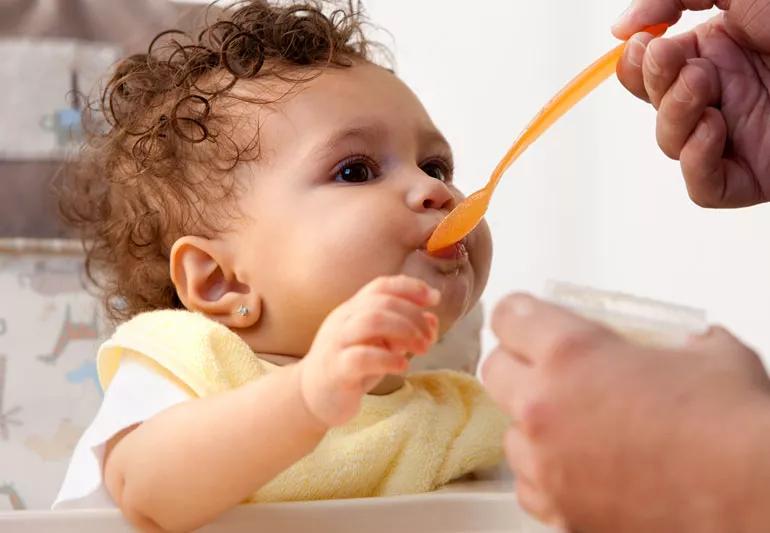How to make baby food at home

Image content: This image is available to view online.
View image online (https://assets.clevelandclinic.org/transform/ee91e64c-9413-4519-8a47-7c96597136fe/babyEating-138307828-770x553-1_jpg)
baby being fed baby food
When it comes time to for your infant to start eating solid food, is preparing it yourself any better or worse than choosing pre-made, packaged baby food?
Advertisement
Cleveland Clinic is a non-profit academic medical center. Advertising on our site helps support our mission. We do not endorse non-Cleveland Clinic products or services. Policy
“Both types of food have pros and cons,” says pediatric dietitian Diana Schnee, MS, RD, CSP, LD.
Baby food in the jar is convenient and portable, but some parents worry about:
For these and other reasons, some parents opt to take the homemade route. This can be less expensive, but it also has its downsides:
Advertisement
It’s up to you. According to Schnee, the concerns aren’t dire enough to rule out either type of food. Ideally, she recommends a combination — making homemade food when you’re having dinner at home and buying jars for when you’re dining out.
“The quality of processed baby food is no longer an issue — there are high-quality, natural baby foods on store shelves now, and most well-known brands have good safety records,” she says. “But if parents want to make homemade food, it’s fine as long as they do it safely.”
If you choose to make baby food yourself, follow these guidelines:
No time for homemade? Busy parents can still feed their babies fresh foods that don’t come in a jar. Take one of these along on your next outing:
Advertisement

Delivered every Tuesday!
Sign up for our Health Essentials emails for expert guidance on nutrition, fitness, sleep, skin care and more
It's a letter about the news!
Learn more about our editorial process.
Advertisement
Here's the scoop on one healthy way to feed your baby
When and how to introduce solid foods into your baby's diet
The short answer from a pediatrician
Babies should wean off the bottle at 18 months
The short answer from a pediatrician
Variety has long been the spice of life. Now, it can also help keep your child safe.
A pediatrician weighs in on this whole foods approach to weaning
The short answer from a pediatrician
Type 2 diabetes isn’t inevitable with these dietary changes
Applying a hot or cold compress can help with pain
Pump up your iron intake with foods like tuna, tofu and turkey